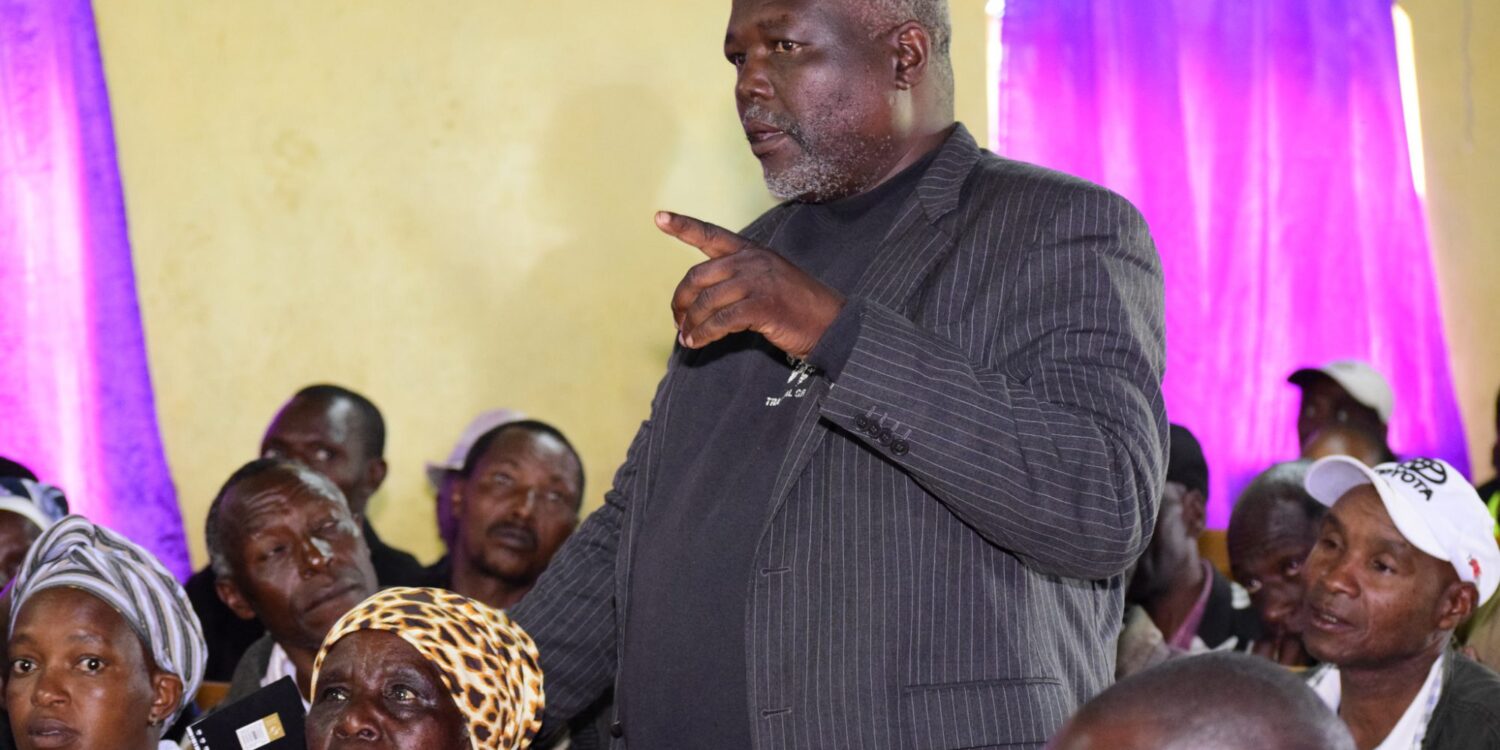The weather was overcast and dull but like ants that make their way out of their earthly nests so did the residents of the Kirima location. Situated in the north western region of the Nakuru North Sub County in Kenya, Kirima location is largely populated by farming communities. The residents wake up embracing the new dawn and making their way to achieving their daily targets. Most of them were heading to their farms, carrying an assortment of tools that will probably be used in the days activities. They had machetes, hoes and digging bars with them settling in one’s mind that their day will be full of heavy activities. Some of the residents have a different agenda because on this day they had been asked by their Chiefs to gather in one of their local churches for a meeting.
100 farmers had been invited to attend a seminar that was geared towards activating a thinking around transforming lives through agriculture. In Maputo, Mozambique, in 2003, the African Union (AU) Summit made the first declaration on the Comprehensive Africa Agricultural Development Programme (CAADP) as an integral part of the New Partnership for Africa’s Development (NEPAD).
“Agriculture is everyone’s business: national independence depends on its development because it enables us to escape the scourge of food insecurity that undermines our sovereignty and fosters sedition; it is a driver of growth whose leverage is now acknowledged by economists and politicians; it is the sector offering the greatest potential for poverty and inequality reduction, as it provides sources of productivity from which the most disadvantaged people working in the sector should benefit.”
— Ibrahim Assane Mayaki, Chief Executive Officer of the NEPAD Agency
The Kirima farmers discussed their challenges and suggestions as they went through the sessions led by Al Kags of The Open Institute. The session had the farmers learn about the importance of data collection and using data to understand issues and making priorities.
The Open Institute believes that citizens who are knowledgeable on their resources and issues can make better decisions and are able to voice their concerns to their leadership and participate better in public forums.
Mr Njoroge, one of the farmers who farms maize is concerned about the access to markets. He has 2 acres of land under the maize plantation and come harvest time, he struggles to take the produce to the market due to bad roads. “If I had better storage facilities, I would weather the pests”… he said. Mr Njoroge is forced to reduce the price of the harvest to brokers who take advantage of the situation. Pests are also showing resistance to the common recommended pesticides. Irregular visits from the ever busy government agricultural extension officers make it hard for the remotely located farmers to reap from modern innovation and desired knowledge.
Feed the Future (FTF), which is the U.S. Government’s global hunger and food security initiative, through the Africa Lead program (primary capacity building program), has partnered with the Open Institute to understand issues associated with agriculture to try and help farmers in the community understand their challenges and identify opportunities that would enable them make transformative decisions, that will create wealth, build food security, provide better nutrition and bring economic growth and prosperity.
Farmers like Mr. Njoroge are gasping for fresh ideas and support that can see them gain economic stability. Agriculture can truly transform Kirima location, the Country and the Africa region, gaining wealth creation and prosperity as well as in delivering food security and nutrition.













